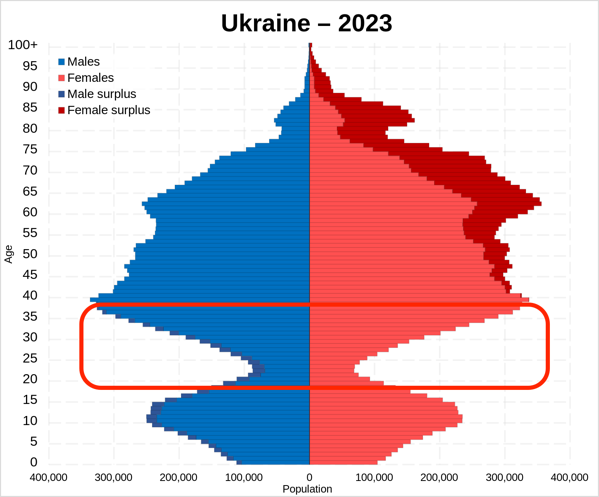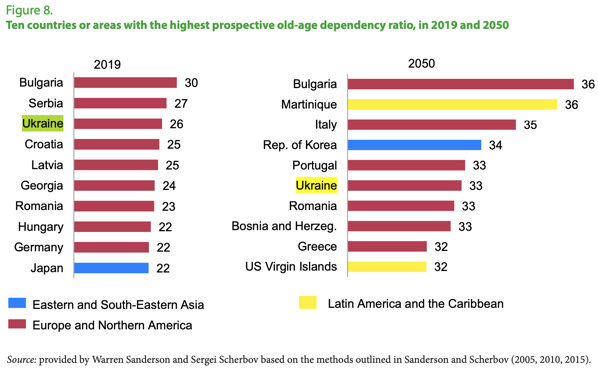Aside from being a part of the Russian, East European, and Eurasian Studies fraction in Yale of course.
Is - that he talked about the elephant in the room, which was the 50 years timeframe, that russia sought a solution for.
The reason was baked into its demographics. The younger Eurasian studies majors apparently need to ignore that actively, because they still need to get promoted of course.
But the whole demographic situation of russia dictated it.
src: click
Its even mentioned in the talk, in terms of the longstanding US position in foreign policy debates that “russia was over”. Demographically - it would strongly contract in numbers, no matter what. A dying formally (not so great) great power.
So russia was interested in negotiating 50 year or 100 year timeframes (mentioned in the video above, by Thomas Graham). Because if they got “will survive two US administrations” timeframes in terms of security guaranties, they would have had to renegotiate at a time, when they’d not be able to achieve anything close to a “buffer zone” (Putin just mentioned that term today, and the Ukraine promptly reacted publicly, so google it) with “political influence” in place, using military power as a means to get there. Even in negotiations. So russias position would have strongly worsened, simply because of demographics. So regardless of what happened, their military power would have declined (halfed!) in the years to come.
So as soon as the US went the “promise nothing” and “we need to discuss this in much larger debating platforms” and “here are some concessions on the numbers of weapons we will be stationing in NATO-Ukraine” route - the russian power elite, or whats left of it under Putin, knew that the talks had failed from their perspective.
(F.e. not being able to keep their military fleet stationed in the black sea (Sewastopol), which is projecting russias military power into the mediterranean, africa and the near east as a result. (see: click))
The other demographic elephant in the room of course being, that someone managed to present this

src: click
As a country with a great economic future, and democratic will to become a european democracy, highly important to the EU as a growth market.

src: click (digitallibrary.un.org)
See also:
I mean that the younger population in that country would predominantly try to move to more prosperous regions is a given. And that that wouldnt have been russia by choice also is a given.
But we know that russia would have been fine with EU membership in April of 2022, according to the draft peace deal that the Wall Street Journal got to see (original link: click) - as long as Ukraine would become a militarily neutral country.
Oh, and by shunned, I mean this:

